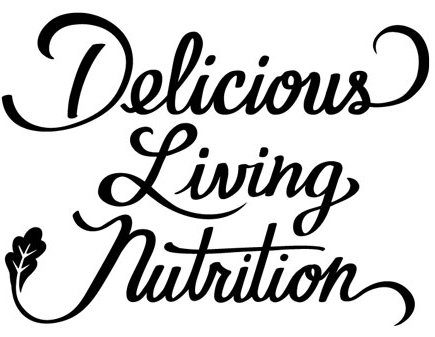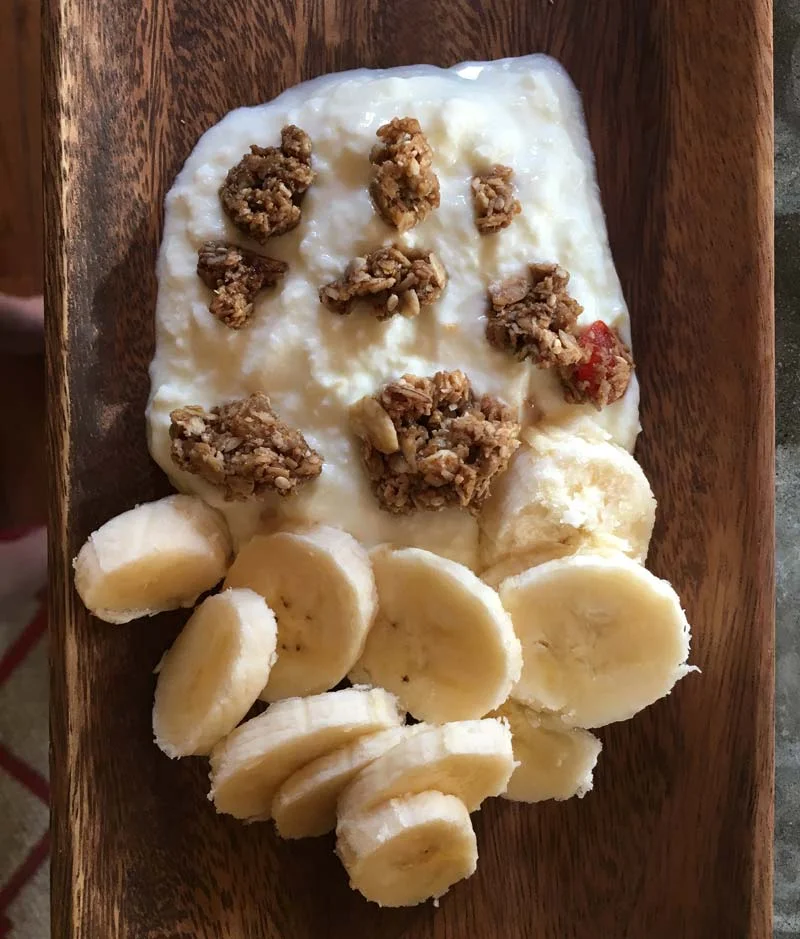Yogurt
yo·gurt
a semisolid sourish food prepared from milk fermented by added bacteria.
Yogurt contains many vitamins and nutrients that have positive implications for your health. Nutrients include B12, riboflavin, magnesium, calcium, and potassium, all of which have important health benefits, such as lowering blood pressure and promoting strong, healthy bones. However, the beneficial microbes (bacteria) present in yogurt during the fermentation process may be helpful with digestion, absorption and immunity. The root of sustaining a healthy body.
Found in yogurt:
Lactobacillus bulgaricus, Streptococcus thermophiles, Lactobacillus acidophilus, Lactobacillus casei and Bifidus
Best uses:
SNACK: 1/2 cup yogurt + fruit (or veggies)
BREAKFAST: 1 cup yogurt + 1/4 cup whole grain + 1/2 cup fruit
sample: yogurt + oatmeal + banana
LUNCH/DINNER: 2 TB yogurt + protein + grain/potato + vegetables
sample: yogurt + lentils + sweet potato + greens
Yogurt Recipe
This was noted during the Healthy Soil, Healthy Gut presentation at the Soil + Nutrition Conference.
Ingredients
1/2 cup yogurt
1 quart milk
Mason Jar
Sauce Pan
Instructions
Place yogurt and milk into sauce pan to heat on low until temperature reaches 100 degrees. Pour into clean warm mason quart jar, cover and keep at 100 degrees for 8 - 30 hours. I prefer the 30 hours. You may use a Brod & Taylor (see below), an oven or a water bath.
Note: This would be considered raw, because of the 100 degrees used.
By Nicole Cormier, RD, LDN
Adapted from John Bagnulo, MPH, PhD
milk:
: milk from cows or goats that is used as food by people.
: a white liquid produced by a plant. (almond, hemp, oat, rice, coconut, cashew)
Top Milks to pick for homemade yogurt:
Raw Milk
Goat Milk
Sheep’s Milk
Jersey Cow Milk
Why is raw better? The majority of dairy milks are heated to kill the existing bacteria, a process known as pasteurization. However, we may need that bacteria! There are also more Vitamin A, B vitamins, + enzyme phosphatase (needed for calcium absorption) in non-pasteurized milks.
Whole Milk is best! – Vitamins A + K are fat-soluble (they need fat to be absorbed)
Bifidobacterium Strains: (make sure to use a yogurt with these *)
* B. Lactis – Immunity
*B. Bifidum – Immunity, GI Support
B. Breve – GI Support, Anti-aging (kimchi, sauerkraut + pickles)
B. Longum – Constipation, Brain Function (we are born with)
*Lactobacillus acidophilus – Yeast control, breakdowns lactose
Lactobacillus plantarum – Controls inflammation + fortifies gut lining. (kimchi + sauerkraut)
alternative yogurt
Kefir can be defined as a tart drink made from a cow’s milk fermented with certain bacteria. The main difference between yogurt and kefir in terms of production is that kefir cultures at room temperature, whereas yogurt is started at room temperature, and is then cultured in an appliance that maintains around 100-110 degrees fahrenheit. The most significant benefit of kefir is the fact that it contains 10 times the amount of probiotics as regular yogurt.
Suggested Study Reading:





